Description
ABSTRACT
Insider Dealing under Nigerian Law: Any New Lessons?
Joseph Onele*
The paper posits that the regulation of insider dealing will continue to throw up a host of issues. For one, the sophistication of the financial environment within which the law on insider dealing and regulatory mechanisms operate, compounds the practical and legal difficulties confronting those seeking to administer and apply the law. The paper proceeds to argue that the taking of advantage of information that the other party could not obtain, is as old as human nature and that man is naturally structured to think of protecting his interest first. Consequently, the paper asserts that the problem of insiders abusing information that they obtain by virtue of the special relationship that they have with the company is not a new one. Nonetheless, while some do not see any reason why insiders who deal in the securities of the issuer with which they enjoy this privileged access to its information should not be held responsible, others hold the view that acquisition of superior information should not be discouraged, let alone be penalised. It is against this backdrop that the paper critically examines the concept of insider dealing under the Nigerian law; the mischief the law seeks to remedy; and considers relevant lessons from other jurisdictions.
INTRODUCTION
It is no gainsaying that the taking of advantage of information that the other party could not obtain, is as old as human nature;1 admittedly, man is naturally structured to think of protecting his interest first. Thus, one may be right to assert that the problem of insiders abusing information that they obtain by virtue of the special relationship that they have with the company is not a new one.2 Nonetheless, while some do not see any reason why insiders who deal in the securities of the issuer with which they enjoy this privileged access to its information should not be held responsible,3
* LL.B (Ibadan) First Class Honours, B.L.(Hons). Associate, Banking, Finance Practice & Capital Market at Olaniwun Ajayi LP, Lagos
- See Barry Rider, Kern Alexander & Lisa Linklater, Market Abuse and Insider Dealing (Butterworths, London, 2000) 1; see also, Brenda Hannigan, Insider Dealing (Kluwer Law Publishers, London, United Kingdom, 1998) 1
- Barry Rider et al, ibid; see also Abubakar Garba, ‘Impediments to Effective Enforcement of Insider Trading Regulations in Nigeria’ (2013) 3 (1) International Journal of Management 1 3 – 1 4 where it was rightly opined that the problem of insider dealing is not a new one but “one of the corporate ills that have existed since the emergence of the abstract
entity known as company” - See Hon. Dr. J. Olakunle Orojo, Company Law and Practice in Nigeria, (Fifth Edition, LexisNexis Butterworths, 2008) 390-391, where he posits that “the use of “inside” information by an insider to benefit himself at the expense of others, not so well placed, is unfair”. In further buttressing his position and concluding that insider trading is unfair to the individual shareholders, Orojo argues that where a director who ordinarily has a fiduciary duty to the company is allowed to use the “inside” information he has of the affairs of the company to his benefit, a conflict of interest situation is inevitable

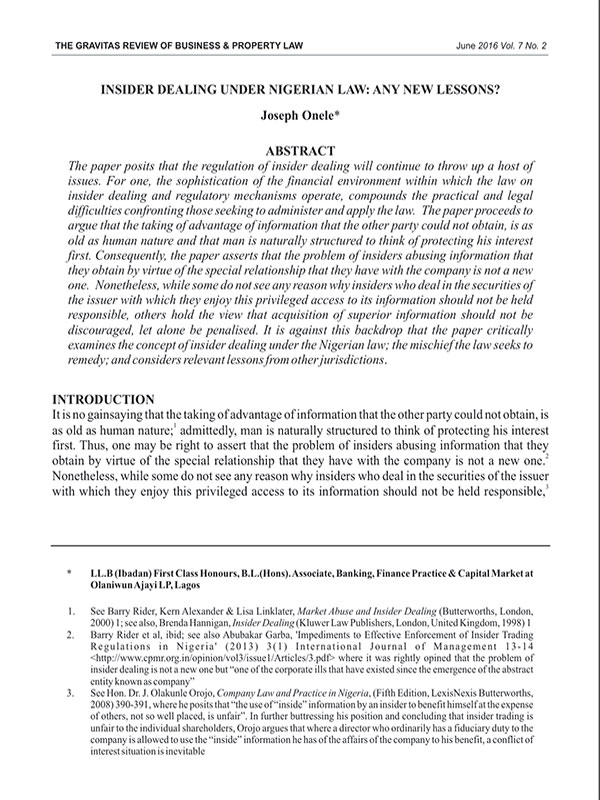
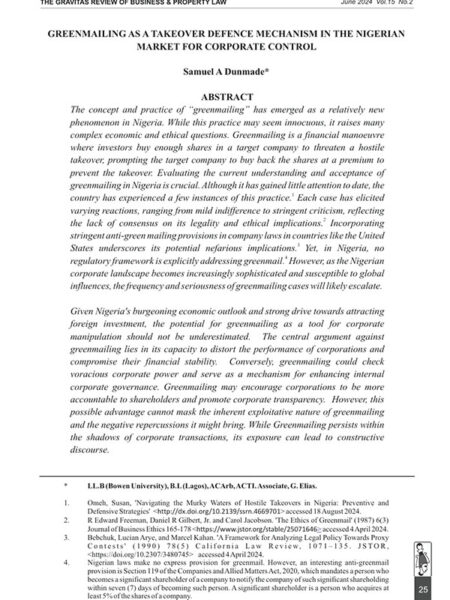
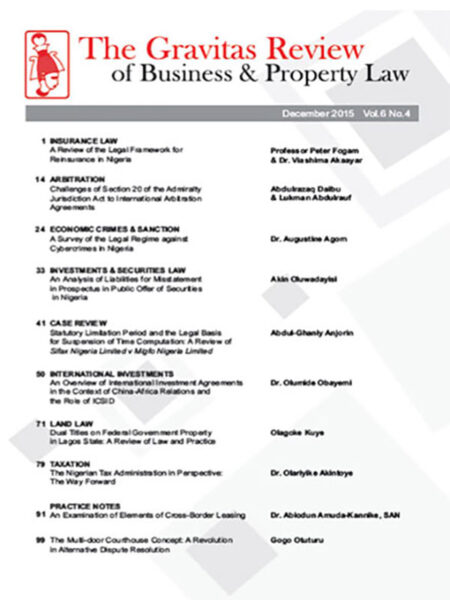
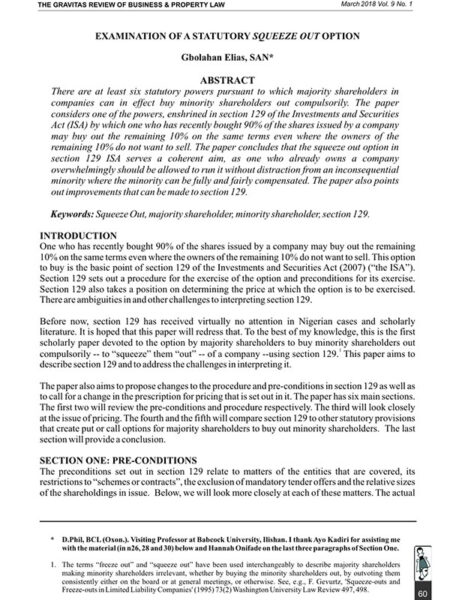
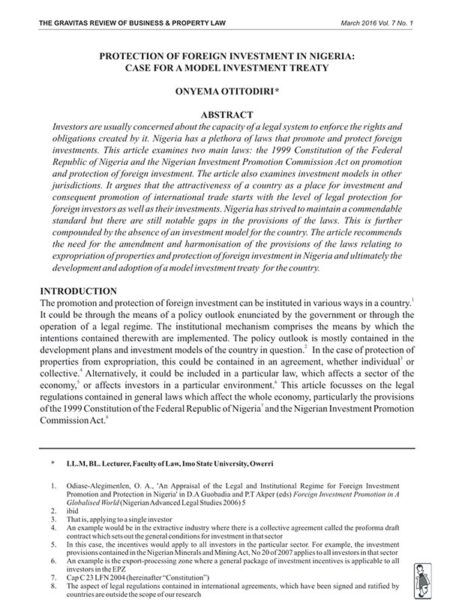


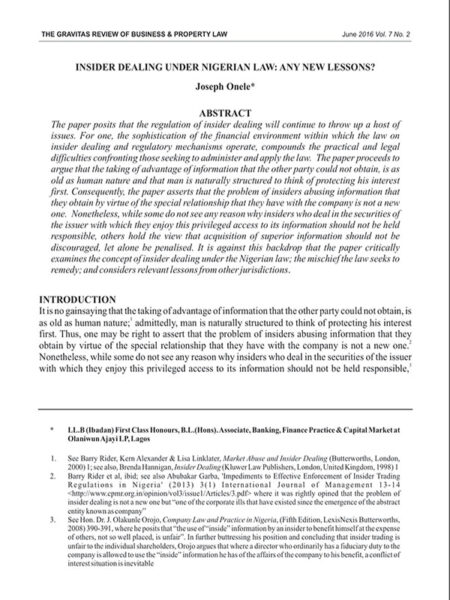
Reviews
There are no reviews yet.